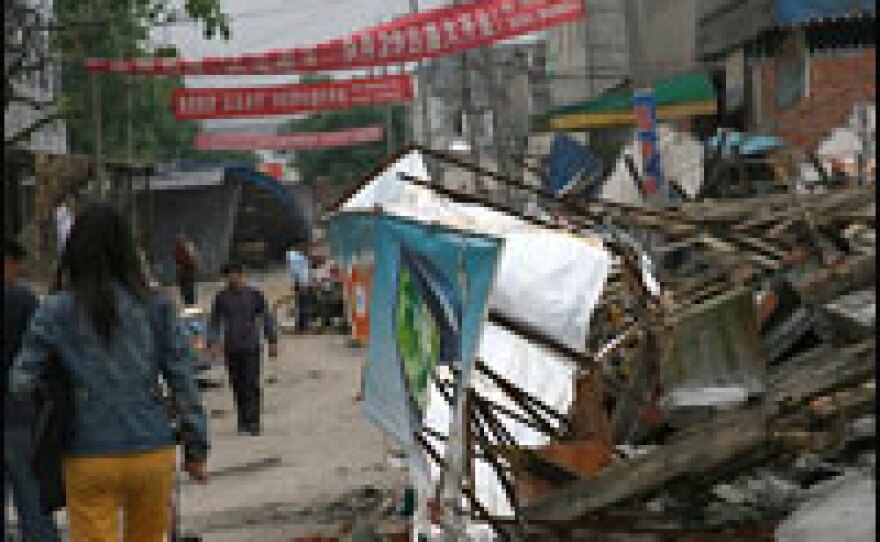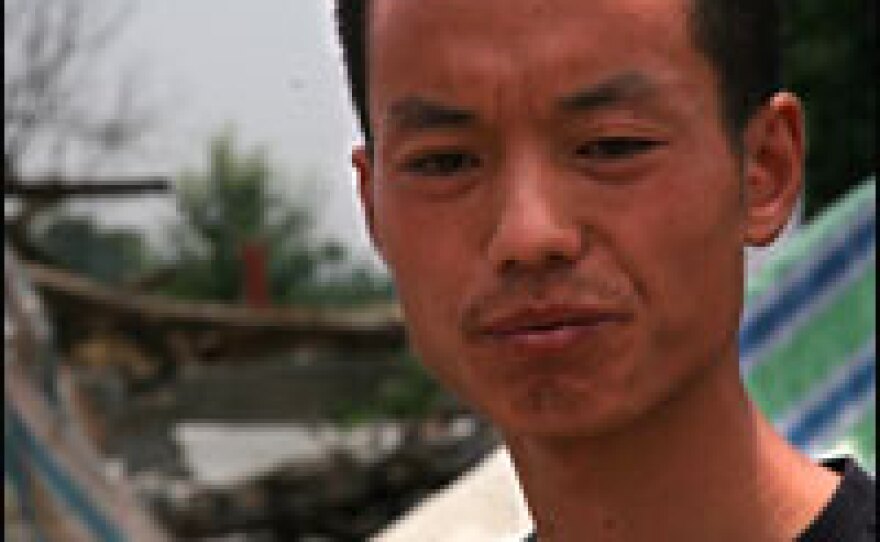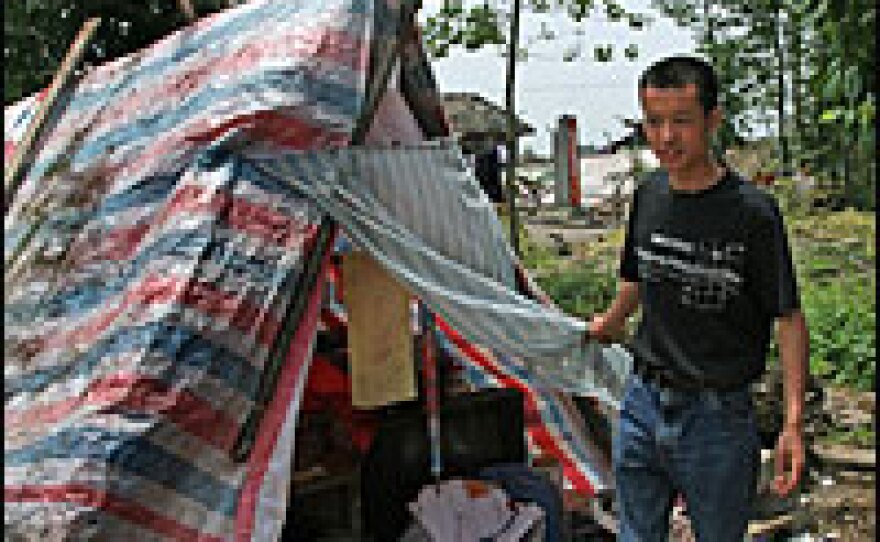


Throughout the disaster area in the Sichuan province in China, people are homeless and hungry.
Once Chinese authorities finish the mission of rescuing those who are trapped under debris and still alive, attention will turn to the living.
In some towns near the provincial capital Chengdu, people say they urgently need help.
Gong Xing, near the Sichuan city of Mianzhu, ran out of water.
A fire truck parked along the main road Thursday morning dispensed water from a hose. Town residents lined up to fill plastic jugs and basins until it was gone.
"We need water," they told NPR's Robert Siegel. "We need rice. We need medicine. We need tents."
The residents say the government came through the town and searched for survivors in the remains of collapsed buildings — and there are many.
The village government distributed some supplies Thursday morning, too, but only one bottle of water per person. It's not enough, the residents say. They are hungry and have no food.
"We really need help," says Luo Qi, an 18-year-old student who speaks some English.
Many people in Gong Xing were injured in the earthquake or fell ill after, says 21-year-old Jen.
"The medicine is very limited," he says. "Many of the people must send to the big hospital."
Government Intervention
What happened next was inevitable. A couple of local government officials took the lead and warned the others not to be negative.
It's a recurring theme: The Chinese mistrust foreign media. They fear they will make them look bad or make their government look bad.
Local leaders insist on joining NPR on a tour of the town to the see the worst of the damage. Their account of the official response to the disaster was glowing. They say help arrived right after the earthquake.
But the scene of the damage was devastating.
The center of Gong Xing was destroyed. Walls, doors and furnishings sat in a jumble where houses used to stand. Buildings that didn't fall were damaged. No one stayed inside.
Despite what the leaders say, one man complained loudly.
"Why didn't anyone warn us?" he says. "No one has come to console us."
The man was very angry. He argued with the people who were giving NPR a positive spin on the situation. He said the government hasn't done well by the people of Gong Xing. The others scolded him for talking angrily.
As bad as it looks in the center of town, it's worse in the surrounding countryside.
A Farmer's Plight
Farmer Mao Yun Cheng's house was reduced to a pile of rubble. Like everyone in the town, he sleeps in a makeshift tent: a plastic tarp slung over some small trees. Under the tarp lie beds for his wife, his mother and his child. Other families sleep in tents nearby.
Mao says he used to have 160 pigs, but now he has 70 or 80. He has trouble feeding his pigs, and now they are in danger of getting sick.
"For now, my priority is to keep them alive," he says. "And hopefully find something to feed them, because these are my property, my livelihood."
A couple dozen people who live and farm down the road say they don't have enough water, but the government gave them pills to put in the water to make it potable.
Wang Ming Qun, the village's leader, who wears a straw hat and a pink blouse, says villagers are reduced to one meal a day.
"We have one instant noodle, one package of instant noodle per day, that's all our meal," she says. "And we have to get dirty water from the creeks. That's the only water we have."
The people said over and over what they need: water, food, tents and medicine. The farmer added feed for his pigs to that list.
On the road back to Chengdu, convoys of trucks, private cars and taxi cabs rushed supplies in the direction of Mianzahu, the city near this rural Sichuan town.
When provisions do arrive, it will be none too soon for the people of Gong Xing.
Copyright 2022 NPR. To see more, visit https://www.npr.org. 9(MDAzMjM2NDYzMDEyMzc1Njk5NjAxNzY3OQ001))






